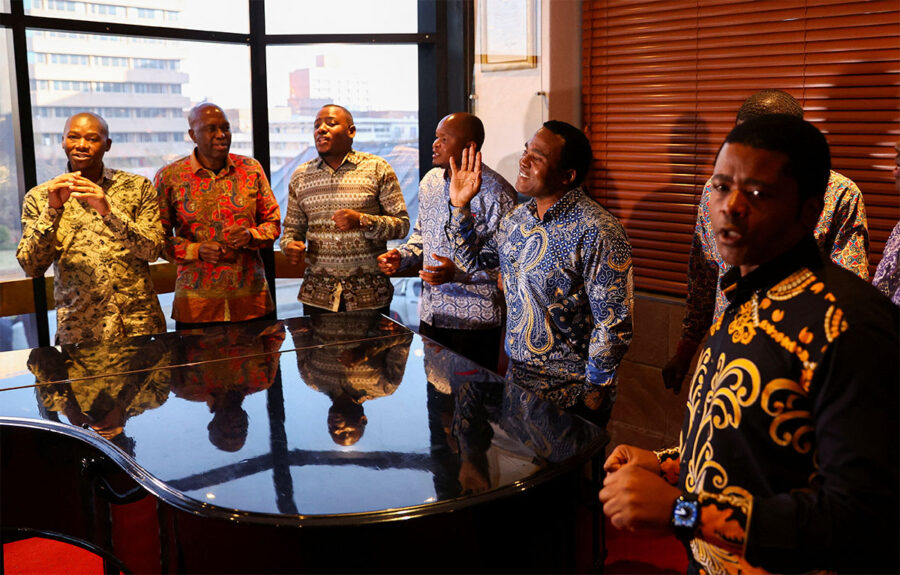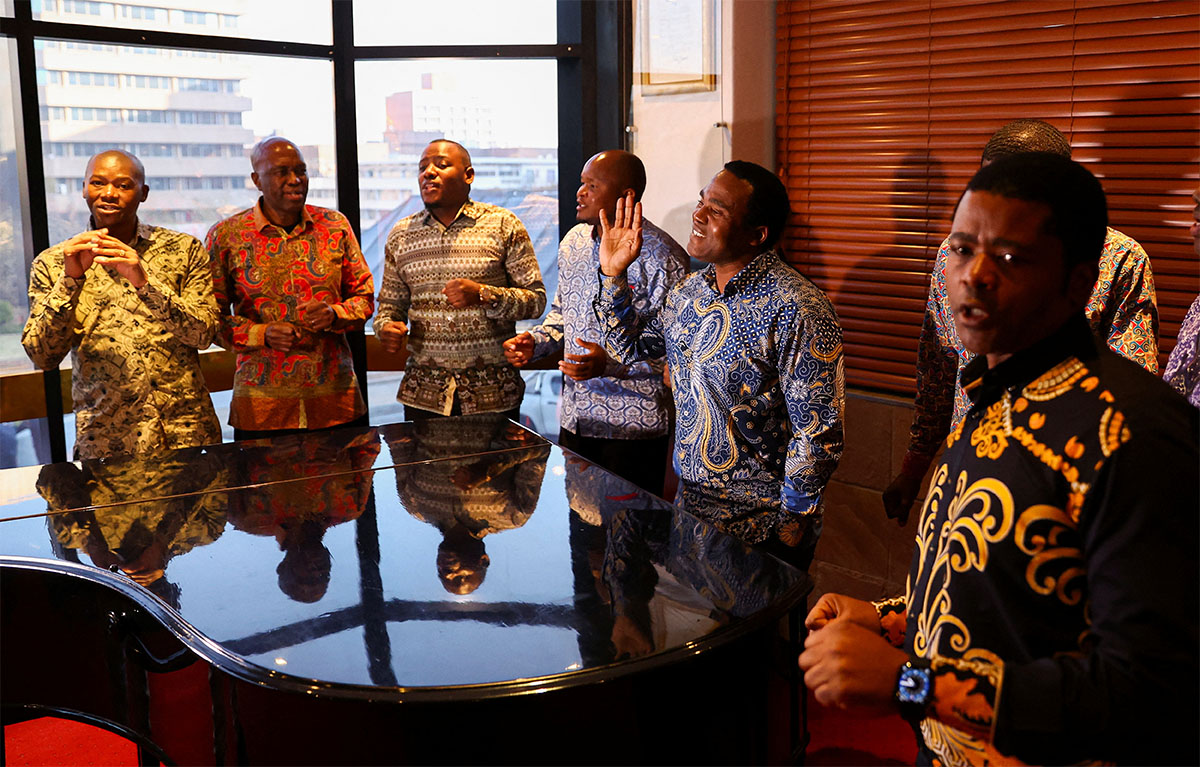
Ladysmith Black Mambazo Shrug Off Loadshedding to Sing for Mandela
JOHANNESBURG (Reuters) – Ladysmith Black Mambazo sang their warm-hearted choral harmonies in honour of peace icon Nelson Mandela on Sunday, with a 45-minute forced intermission caused by one of the power cuts that have become such a part of daily life in South Africa they have their own name – loadshedding. By Tim Cocks The […]

JOHANNESBURG (Reuters) – Ladysmith Black Mambazo sang their warm-hearted choral harmonies in honour of peace icon Nelson Mandela on Sunday, with a 45-minute forced intermission caused by one of the power cuts that have become such a part of daily life in South Africa they have their own name – loadshedding. By Tim Cocks
The concert in Johannesburg’s main theatre, a day before U.N.-declared Mandela Day, his birthday, celebrated the life of the man who steered South Africa from the manacles of apartheid to multi-racial democracy while narrowly avoiding a civil war.
“Madiba has been an inspiration for us,” Sibongiseni Shabalala, band member and son of the band’s late founder Joseph Shabalala, said, using Mandela’s clan name.

“He was in prison for people to get freedom, even when they said, ‘ok, we’re gonna release you if you (give up)’ … he said ‘no, my freedom is the freedom of my people’,” Shabalala told Reuters before the concert.
Formed in the 1960s, the lilting choir jazzed up traditional Zulu music with a ragtime feel and exported it to the world – most famously through a collaboration with Paul Simon on his 1986 album ‘Graceland’.
It also cut songs with Dolly Parton, George Clinton, Michael Jackson and other big names.
“My father taught us that a good song is one everyone can listen to. A song that will unite people,” Sibongiseni Shabalala said, reminiscing about founding member, Joseph, who died from illness in early 2020.

The band’s name derives from the small farming town its members are from, the black oxen which were most prized among pastoral Zulus, and ‘mambazo’ – the Zulu word for ‘axe’.
It was not closely associated with Mandela during the struggle against white minority rule, and was tolerated by the authorities as apolitical – something they misunderstood, according to longstanding singer Albert Mazibuko.
“We were on the same page (as Mandela),” he said. When they performed at his birthday in 1993, Mandela told them that their music had kept him going while in prison.
At the theatre packed with mostly affluent Black South Africans on Sunday, the group got through three songs before a power cut took out the sound and stage lights – a reminder of major challenges facing the country nearly three decades since ex-president Mandela achieved his democratic dream.
Around three quarters of an hour later, a generator rumbled on and the group resumed to a loud applause.
(Editing by Andrew Heavens)
